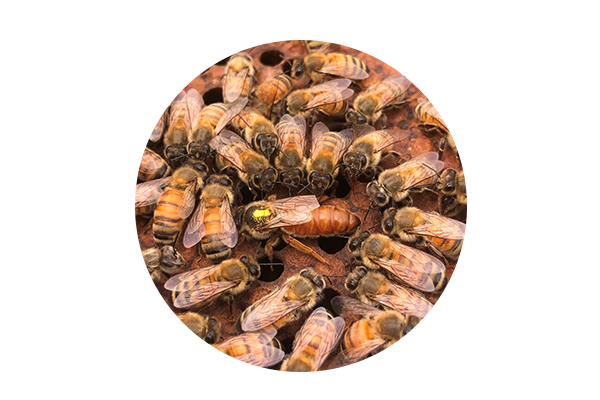What is the reason to requeen or is it better to let the bees do it themselves?
This is a topic of considerable discussion. The bottom line maybe yes if you think you can get better Performance and better Production.
Requeen a colony should be considered if it exhibits one or more of the following: unexplained low bee population, excessive propolis production, laying workers, defensiveness, high swarming tendency, poor honey production or excessive drone production.
Better performance means the queen is laying to the peak based on the seasonal resources stimulating the colony to grow. Most beekeepers re-queen every year, typically in the fall, to take advantage of the best egg-laying of a young queen. A queen can lay for several years, but queens are most prolific for the first year and decline during the second year. In addition, a colony with an older queen is more likely to swarm than one with a young queen that have higher pheromone levels.
Colonies with young queens are less likely to be overwhelmed by parasitic mites. It’s my experience that a colony that is doing poorly is a result of an inferior queen. Allowing the hive to re-queen itself from its own genetics may result in a continuing inferior colony.
Purchasing a queen from a quality queen breeder removes a lot of the guesswork as the queen breeder has already been selecting a stock from beehives with proven performance and production. Queen breeders also schedule grafting larva with 24 hours of the egg hatching allowing for the queen to be fed longer than it might if the bees replace the queen themselves. For example, the bees may select larva that is up to two days old and a larva of the correct age (less than 24 hours after hatching). The two day old larva will often be an inferior queen, but hatched before the larva that was of correct age. The inferior queen will be smaller, less vigorous and will destroy larger queens in their queen cells before they emerge.
A queen needs to mate with 18 or more drones over a two-day period to accumulate the five million sperm she will need throughout her life. If the weather during her mating flights is cold or rainy, then drones may be scarce, resulting in less mating. This queen may run out of sperm later in the season and no longer lay fertilized worker bee eggs. A virgin queen may mate with drones of inferior stock, resulting in a colony with poor honey production, increased tendency to swarm or one that exhibits excessive defensive behavior.
The last thing to consider is a colony that is allowed to re-queen themselves will be set back 4-6 weeks. The time needed to produce a queen cell, hatch, mate, and begin laying.

